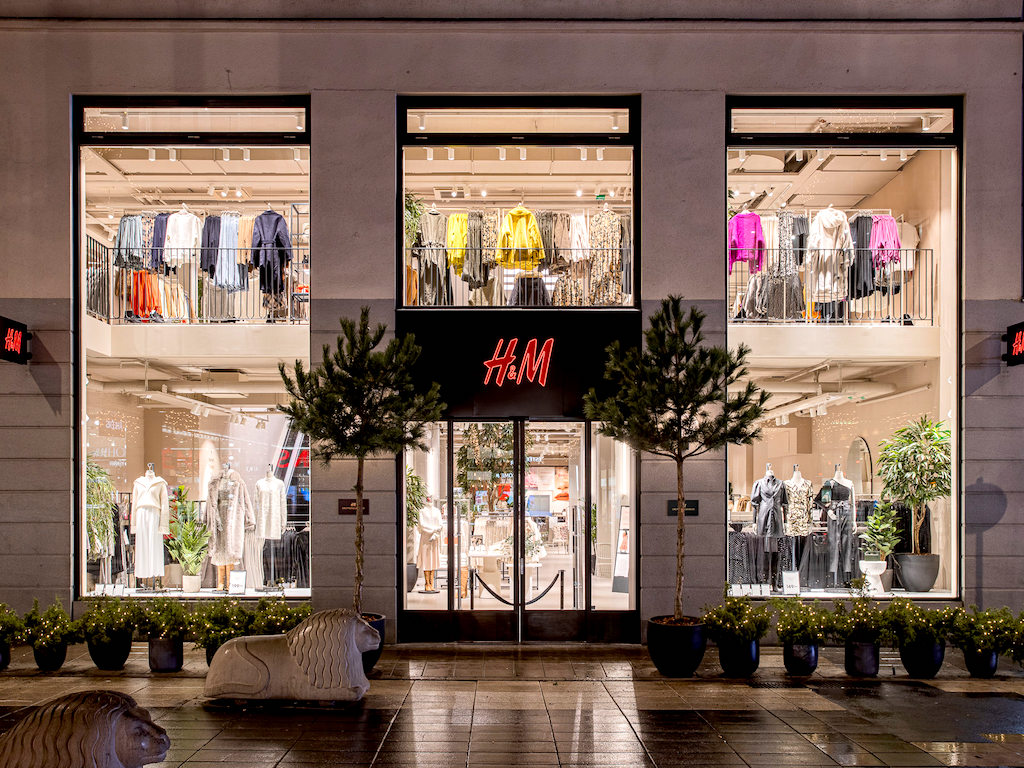3 Mins Read
Swedish fast fashion behemoth H&M is the latest player to show its commitment to a more circular version of the fashion industry with their new rental, repair and recycling concept in their H&M Sergels Torg store located in Stockholm. A major step up from their previous green campaigns, this H&M circular fashion initiative reflects the appetite for sustainable fashion solutions. For a global fast fashion giant to polish its shoes is indicative that companies that wish to remain profitable must start taking into account the social and environmental impact they leave behind. And they ought to set out comprehensive measures too, if they are to convince eco-savvy consumers that it amounts to more than greenwashing.
From the outset, H&M’s new flagship store in Sergels Torg, the shopping district of the Swedish capital Stockholm, looks pretty much like any other H&M store. But quite unlike their other stores, which publicly embraces the mainstream wasteful consumer culture that fast fashion rides on, this store welcomes a new addition: not their in-store Beauty Bar or Café, but an H&M Rental Service, fitted with a textile recycling unit and repair department too.
READ: Is A Circular Capsule Wardrobe The Answer To Being Truly Sustainable?
This rental service consists of a selection of around 50 garments, all made from organic and recycled fabrics as a part of their Conscious Exclusive collections, that can be rented for one week by H&M members for around US$ 38. Each member is able to rent up to 3 pieces per week, and can book time slots for fittings in-house. This campaign will be piloted for 3 months before potentially being rolled out across other stores.
“We believe in rental, for exclusive and occasional pieces. We chose these pieces precisely because these are quite expensive items that were often worn only once,” said H&M’s head of sustainability Pascal Brun.
In addition to unveiling a rental service, the 3,200 square metre flagship also offers a recycling unit, which gives customers a 15% discount in return for their old clothing, which gets sent to its Berlin-based partner I:Collect to get resold in second hand stores, upcycled into furniture, or recycled into new fibres. Alongside this is a repair department called H&M Take Care, where customers can bring in old garments to fix up. It doesn’t end there: customers receive electronic invoices to avoid paper waste, the entire store is fitted with energy-efficient LED lighting, and is 96% powered by renewables.
Currently, the fast fashion giant boasts over 4,400 stores worldwide across 71 countries. For such a huge player to give a bigger nod to sustainability is no small feat for the circular economy trend, which is quickly changing what the fashion industry might look like in the future. Of course, these changes only occurred after H&M, alongside other fast fashion brands, began battling a PR crisis around their environmental impact.
Their initial green campaign to offer a “conscious collection” of garments made from organic and recycled textiles simply did little to quell the dissatisfaction from shoppers. Figures exposing the industry for being responsible for 92 million tonnes of landfill waste, 20% of global water wastage and 10% of carbon emissions sent consumers scrambling for alternative low-impact and ethical options.
READ: Report Shows Sustainable Secondhand Fashion Will Be The Christmas Gift Trend Of The Year
Perhaps H&M’s more comprehensive effort to offer sustainable alternatives this time round is motivated by the astonishing growth that sustainable fashion has experienced across the board, from rental and repair options to secondhand. In China, for instance, the rental economy is set to grow to about a fifth of the country’s GDP by 2025. Across the board, from preloved luxury to thrift, second hand fashion is predicted to take over mainstream fashion by 1.5 times within just a decade. Luxury retailers have already jumped on the bandwagon, such as Harvey Nichols and Selfridges who have partnered up with The Restory to offer refurbishing and aftercare services.
Lead image courtesy of H&M.




